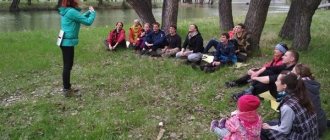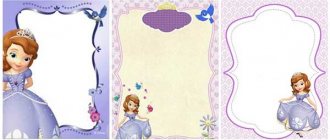Verbal games are games in which the main type of interaction between players is speech. This way to pass the time has become popular and widespread due to its versatility. Word games for children and adults help out during long, boring trips; they can add variety to a children's holiday or a party, as well as to dilute the sweet chatter of two lovers. It will be useful to have several games of this type in your collection:
- parents of one or more little fidgets;
- organizer of any event for a small and medium-sized company;
- a young man who is preparing for a responsible first date;
- speech therapist, stage speech teacher, director of an acting group, primary school teacher.
Regular practice of word games can be used to develop speech, memory, attentiveness, reaction speed, and horizons. In the age of high technology, you don’t even need a partner for this; you can play with any Android device if it has a voice assistant installed that supports the function. For example, Yandex.Alice willingly plays “Cities” or “Believe or Don’t Believe” with the user.
For children
Children of all ages love word games, with the exception of little ones who have not yet learned to speak. But you can play such games with them, provided that the “humming” and other onomatopoeias follow the rules, as full-fledged answers. Usually in such cases the game comes down to simply repeating the surrounding sounds, like a dog barking, a kitten meowing, a car beeping, etc.
Why is it important to do this every day:
- Speech activity. Children who do not yet speak will try to repeat the words after their parents, and the game will act as a stimulus. Older children who study in a preparatory group for speech development will improve their speech, learn new words, consolidate recently learned ones, and hone their pronunciation.
- Erudition, logic, associative thinking. Word games include everyone's favorite riddles, which combine pleasure and benefit and can instill in children a passion for learning new things at an early age.
- Communication. Children practice communication and behavior skills in society through games, since this is the leading type of activity for preschoolers and primary schoolchildren. If it is difficult for a child (one or more) to acclimatize in a group, just play one common game with everyone, then the kids will forget their embarrassment and instantly find a common language.
"Superfluous word"
The child is offered 3-5 words, from which he must choose one single word that is in no way connected with the others. For example, a pencil, notebook, pencil case, cow. The first 3 words can be combined into the category “school supplies”, but the last one does not belong to this category and is superfluous. Even the average kindergarten group can handle the exercise in its simplest form, but by complicating it from time to time, you can help your child not only learn new words, but also learn to fully understand their essence.
"I went to the attic"
A game to develop memory and imagination, which can be played in older groups. The first player says “I went to the attic and found...”, the found item is invented without any rules or laws, and the more complex and intricate, the better. For example, “I went into the attic and found an old green cuttlefish!” The next player does the same, but adds his find to the previous one, like this: “I went to the attic and found an old green cuttlefish and a purple space boot!” The third player adds his find, the fourth - his, etc. When the players run out, the list of finds is not reset, the last player is replaced by the first, and the circle continues. The game ends when one of the players goes astray.
IMPORTANT! The more complex and enchanting the “finds”, the more fun the game is, the more children use their imagination and imagination.
"Lived once"
If your child is in the older group, we recommend choosing more complex speech games for him, which involve composing complex sentences, using imagination and creative thinking. One of these games is called “Once upon a time,” and it will teach your child to write their own fairy tales.
The presenter (adult), starting with the words “once upon a time,” sets the direction of the plot in several sentences, the child’s task is to continue them. If there are several children, then each one takes turns adding their own few sentences to the fairy tale. The adult’s task is to lead and adjust the plot so that the fairy tale turns out to be exciting, dynamic and fun, and also to complicate the task by introducing complex elements.
Birthday competitions
- Each person present is given an orange, from which they need to squeeze the juice into a glass. Whoever managed to squeeze out more juice than others won.
- Remember any song where any name is heard, but sing it, substituting the name of the hero of the occasion.
- Pre-cook semolina porridge. Participants must eat it at speed. The first one to empty the plate wins.
- All guests bring with them their photographs, approximately the same size. Photos are cut according to body parts. All parts are mixed. Contestants must put the pieces together to create a different person.
- Crumple the paper to make snowballs. In a large room or outdoors, you need to throw a snowball as far as possible.
- Two couples are chosen from among the guests, and each is given a roll of toilet paper. At a signal, one of the couple begins to wrap the other in toilet paper to create a mummy. Whoever does it faster and better wins.
- A gift is hidden in a secluded place for the birthday boy, who must find it. When he approaches the gift, they shout “hot” to him, and “cold” when he moves away.
- Guests are divided into pairs, each is given a sheet of paper and a felt-tip pen. Couples sit opposite each other and begin to draw a portrait of their partner. The best drawing wins.
- Pots filled with the same amount of water are placed in front of the two teams. The team that drinks water using spoons faster than the other wins.
- The presenter covers the picture with a sheet of paper with a small hole - one centimeter in diameter and moves it. Participants guess what or who is shown in the picture.
For adults
Adults can use speech games in different ways: they are both a way to kill time and a good workout to keep their speech, communication and improvisation skills in good shape. And if everything is very clear with leisure, then few people know about using games for self-development. The number of specialists who often have to deal with speech games during preparation can be counted on one hand:
- actors, speakers and readers;
- announcers, TV presenters, radio hosts, bloggers;
- diplomats, negotiators.
Please note that for all of the listed professions and activities, a mandatory professional skill is not only the ability to speak beautifully, but also resourcefulness and the ability not to get lost in difficult situations.
For a person who does not pursue a career as an artist or media person, games can help him do the following:
- Remove filler words and interjections from speech.
- Learn to build sentences quickly and correctly.
- Learn to structure your speech and express your thoughts as succinctly as possible.
- Learn to quickly find an answer to any question and easily maintain a conversation with any interlocutor.
These skills will be useful at work, in your personal life, at home, and wherever you need to talk. In addition, confident speech is an attribute of a confident person, so difficulties with complexes can also be completely or partially eliminated with the help of speech exercises.
"Tweedledee"
A simple game of attention and memory in which players count from one to infinity or to any agreed number, for example, to one hundred. During counting, the numbers are called by the players one by one and very quickly. The essence of the game is that all numbers that are evenly divisible by a certain number, for example, 9, must be replaced with the word “tweedledee”. Seven, eight, tweedledee, ten, eleven, etc. The one who gets lost or makes a mistake is eliminated, the last one remaining in the game wins.
The game trains the ability to parallelly process and sequentially apply various information, and also develops short-term memory.
Associations
There can be an infinite number of options for playing association, all of them train associative thinking, thanks to which you can create a conversation out of nothing and talk endlessly. This version of the game is more complex, suitable for both two people and groups, and allows you to have fun.
A team of players (or one player if two people are playing) guesses a person from the team or from a certain circle of mutual acquaintances. The presenter must guess who the team has guessed by asking leading association questions. Examples of questions:
- If man were an element, would he be fire or water?
- If a person were an animal, would he be a cat, a bear or a cow?
- If a person were a plant, would he be an eggplant, nettle or chamomile?
At first glance, the questions seem nonsensical because associative thinking is not yet your strong suit. After just a few minutes of practice, you will learn to notice the similarities between the characters of people and objects and use them in the game.
"P"
A charade type game for several players. The presenter receives a word from any player, his task is to explain to the others what this word is, using exclusively words starting with the letter “P”. For example, the word “car” can be explained like this: parked, washed, drove. You can give players hints if all the words in them also start with “P”: almost right, wait, think, bad, complete failure, etc.
Game 1. Meta-anagrams
Meta-anagrams are words that can differ from each other in both the letter and the order of the letters in the word, unlike anagrams, in which only the order in the word is allowed to be swapped. Meta-anagrams can be matched to almost any pair of words, for example.
FLY - ELEPHANT. FLY – HULA – MOON – LUN – ZERO – ELEPHANT
MIG - ERA. MIG - MAG - MAY - TEA - HOUR - CHAD - GAD - YEAR - GENERAL - ROCK - SIDE - BOA - BRA - ERA.
For two
Word games for two are almost always dating games, the purpose of which is twofold. On the one hand, games can fill time if the conversation is not going well, on the other hand, it can help you loosen up and get closer. Why is the game liberating? Because it has simple and understandable frameworks, within which it is disproportionately easier to exist than outside them, that is, in a world where there are more conventions and not all of them are obvious. To put it simply, when you get involved in a game, you stop thinking about what to say to you now, because it is determined by the game, you do not worry about your behavior, because it is currently in the game. Thus, by putting aside the anxieties typical of a first date, you will better open up as a person and as an interlocutor.
With the game you can:
- flirt;
- to compliment;
- tell jokes;
- ask sensitive questions.
Any couple has encountered a moment when both are interested in the same question, but no one dares to voice it directly. This can always be done through the game.
"Unfortunately and fortunately"
This game is reminiscent of the children's “Once Upon a Time”; it is also based on composing a plot or dialogue, but it also has its own characteristics. The couple is divided into a “pessimist,” who begins his phrase with the words “unfortunately,” and an “optimist,” whose phrase begins with the words “fortunately.”
— Unfortunately, it’s raining outside.
— Luckily, we have an umbrella.
— Unfortunately, there is only one umbrella.
“Fortunately, we can both fit under it.”
"Inadvertently"
One player asks questions to another, and the “responder’s” task is to answer in such a way that the answer has nothing to do with the question. You cannot answer in monosyllables (yes, no, I don’t know, etc.), you cannot answer meaningfully, and a loss is counted as a violation. Players can change places as many times as they like and set any limits in the game, after which the “defendant” will be considered the winner.
Decorating the room
If you want the holiday atmosphere to be felt right from the door, take care of decorating the room. All guests - both children and parents - will be interested in looking at the decor. Here are several options for decorating a room that will please the eye and add solemnity to the moment.
Festive decoration of the room.
Wall newspaper
Start a tradition of publishing such a newspaper every year on your child’s birthday. You can make it from a roll of wallpaper. Glue the funniest and most interesting photographs of your child over the past year onto it, and write original signatures underneath. This decoration will interest both children and adults. You can leave some space at the bottom for guests’ wishes and signatures. Many years later, when you take out such a newspaper from the mezzanine, you will receive a lot of positive emotions and warm memories.
Home exhibition
An exhibition of crafts, drawings, figures made of plasticine and natural materials, or something else (perhaps self-assembled aircraft models, if the child’s hobbies relate to this) is placed on a shelf or in a display case for everyone to see. If the child is older, you can offer him to first make a souvenir for each guest and give it to invited friends at the end of the holiday. Crafts from the birthday boy's guests should also take pride of place on the shelf.
Balls and serpentine
Every child loves balloons and bright streamers. You can simply hang them around the room or scatter them on the floor. You can also purchase a ready-made design from balloons of different colors or make one to order especially for a child’s birthday. It is important to buy high-quality balloons so that they do not start to burst in the middle of the holiday.
Inside each balloon you can put a piece of paper rolled up with a wish for guests (adults and children), and at the end of the evening invite everyone to choose and burst a balloon and read their wish. Such an original farewell is highly appreciated by both children and adults.
The most attractive part of the body
Each guest writes on his own piece of paper the part of the body that he considers the most attractive in the birthday boy (or birthday girl). Then, when all the guests think that this part of the body will only need to be kissed, the host announces the rule of the competition. And you need to take the coolest shot - a photo with this very part of the body, which is written on a piece of paper from a particular guest, and you should show your imagination. For example, if it says “neck,” you can transform into a vampire and passionately prepare to plunge into the neck of the birthday boy; if it says “hair”, you can pretend to be a hunter in ambush, peeking out from behind the bushes (the birthday boy’s hair) and so on. The photographer will certainly capture all the guests with their fantasies, and based on the results of a general vote, the most creative guest will be chosen, who will take his prize.










